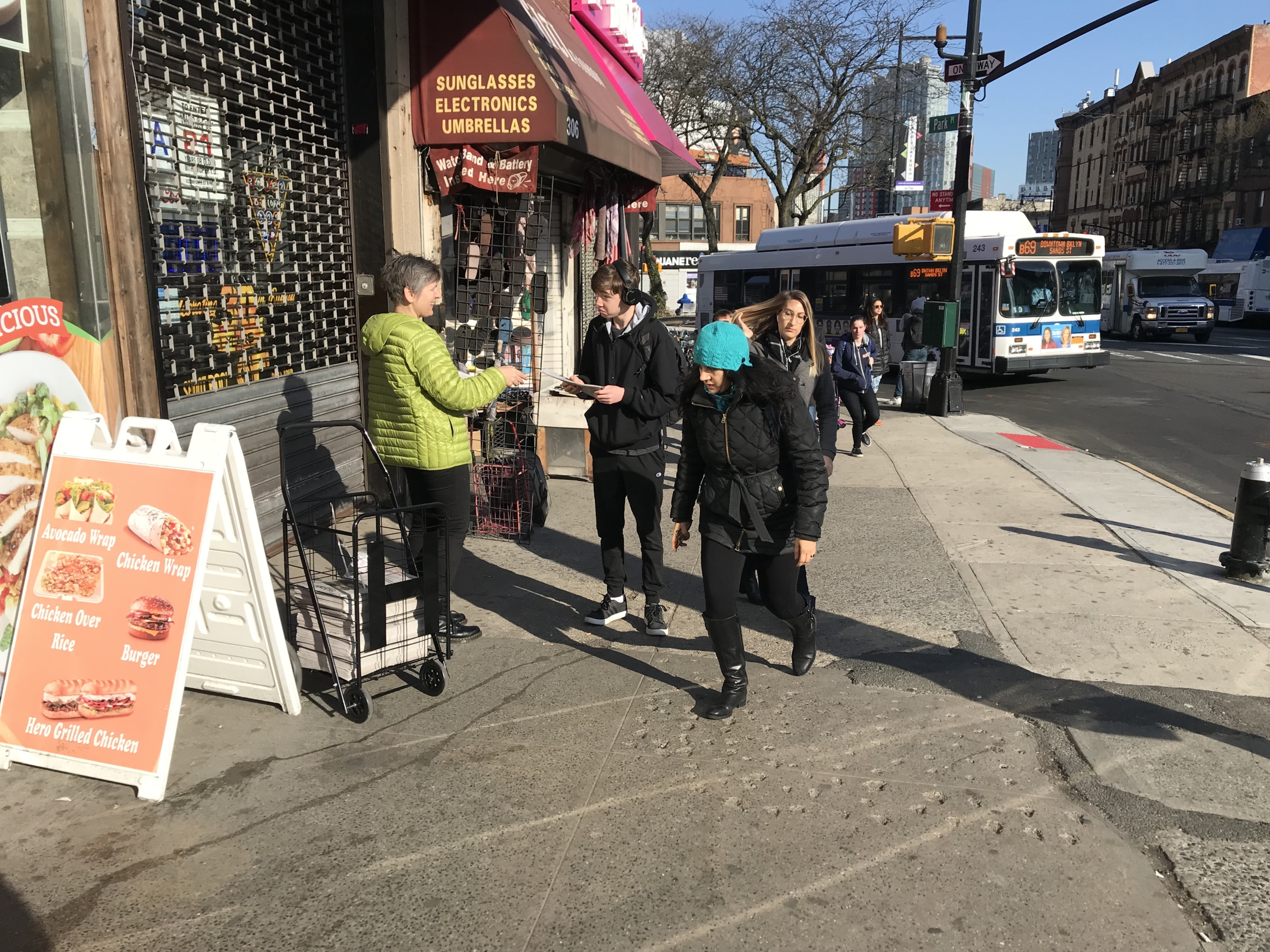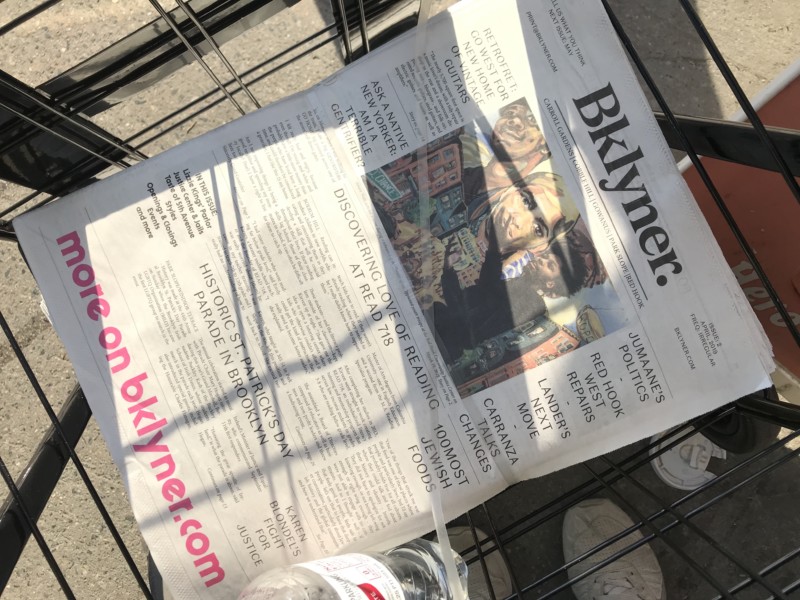Sign up for the daily CJR newsletter.
Last Thursday, at 8:30am in Brooklyn’s Park Slope neighborhood, Liena Zagare, editor of the hyperlocal news site Bklyner, hailed commuters on their way to the 7th Avenue subway station. “Local news?” she called. “Local paper?” “Hi, would you like some local news?” In black boots, black jeans, and a black Bklyner T-shirt—topped with a neon green jacket—Zagare was upbeat. You have to be, she said, when you’re hawking newspapers.
Bklyner is an online publication, but last November, sensing an opportunity to capture local advertisers, Bklyner began compiling some of its best articles in print. The paper comes out each month, roughly, with separate editions for northwest Brooklyn, which includes Park Slope, and central Brooklyn.
ICYMI: “Absolutely shocking”: Journalists on edge over proposed bill
Some commuters took a copy from Zagare as they passed. A few actually doubled back from the station to collect the paper. “I wonder how long it takes to register in somebody’s brain,” Zagare said. “Like, ‘Oh, local news? Maybe I want that.’” A middle-aged man sporting a brown sweater and AirPods stopped to look the paper over. At 32 pages, it contained stories about housing troubles in Red Hook, a nonprofit dedicated to literacy in Boerum Hill, and the city’s new public advocate, among other topics. “It’s about the neighborhood?” the man said, flipping a couple of pages. “Very cool.”
Bklyner got its start in 2017 as a consolidation of hyperlocal sites, including the Bensonhurst Bean, the Ditmas Park Corner, and the Park Slope Stoop. From the outset, Zagare had little interest in print. (“I don’t like killing trees,” she says.) But last year, following a period of financial difficulties, she discovered that many local businesses had found hyperlocal targeting on Facebook difficult and prohibitively expensive. Bklyner approached businesses—the family-owned food market, the local pharmacy, an interior designer—with ad placements priced as low as $100, and they bit. The first print run was 10,000 copies.
Do the ad sales make up for the cost of putting out the paper? “It depends how you count,” Zagare says, with a laugh. But a fresh revenue stream was not the only goal. As important was raising Bklyner’s brand awareness and getting stories out to the community that might otherwise be missed online. “This is a cross check,” Zagare says. “Like, ‘Did you get every story? Did you miss the big ones?’”
On the same morning Zagare was pushing papers in Park Slope, her colleagues were posted at subway stops elsewhere in the borough. Students from Brooklyn College and members of Domestic Personal Helpers, a local business, were delivering stacks of papers to coffee shops and apartment buildings. At George’s, the diner next door to Bklyner’s office in Ditmas Park, a copy of the paper was stuffed in with every take-out order.
Overall, feedback has been good. “‘I missed the paper,’ is what a lot of people have told us,” Dina Rabiner, Bklyner’s sales director, says. “They like the idea of holding something in their hands that’s about where they live.” No additional staff are brought on to support print production. And because days are filled with the same editing and reporting duties as ever at Bklyner, Zagare spends late nights laying out articles herself and fussing over each and every detail of the paper’s design. “The typos are me, too,” she quips.
By 9:30, the morning rush had slowed, and Zagare’s fingers were scummy with newsprint. On most handouts, she is able to offload three stacks of a hundred papers each. This time, a stack remains. “Local news? Goes great with coffee!” Zagare called to a young woman gripping a cup from the Starbucks around the corner. “It’s free!” she said to the next passerby. And then, quieter, to herself: “Actually, it’s not free, it’s produced.”
ICYMI: The unsolved assassination of a journalist
Correction: This article originally misidentified Domestic Personal Helpers by the group’s former name, the Ditmas Park Helpers.
Has America ever needed a media defender more than now? Help us by joining CJR today.








